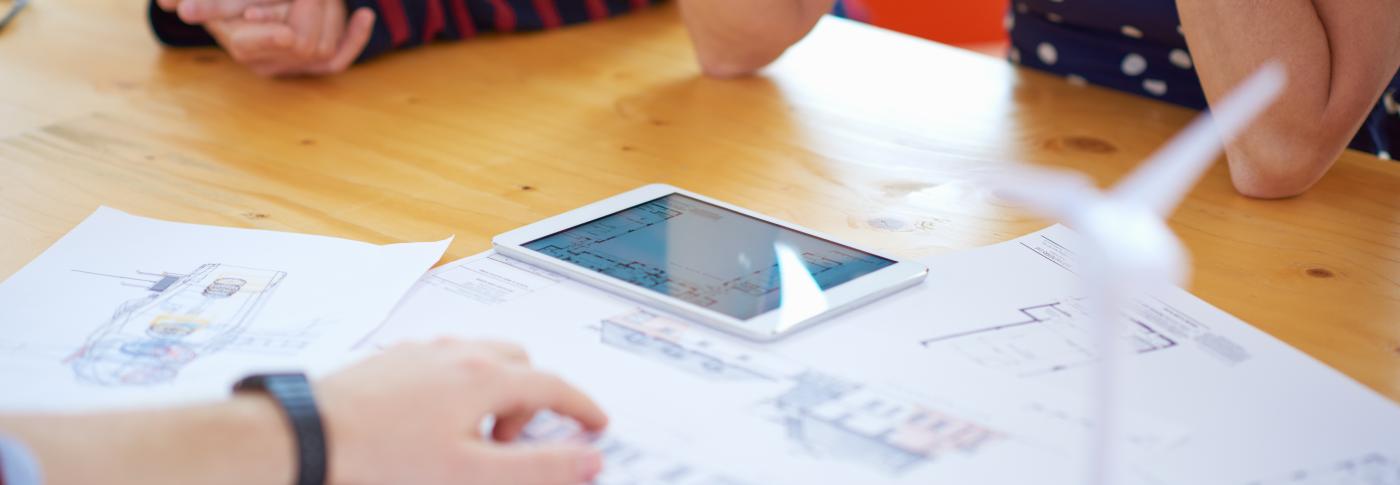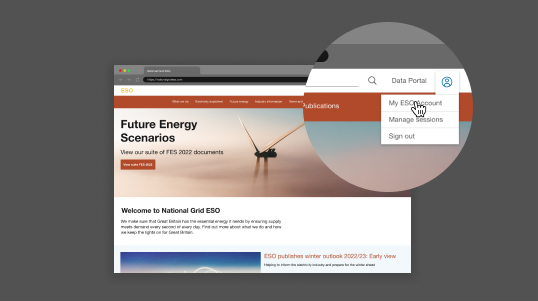
Zero-carbon engineers - Nicola Bruce
30 Mar 2021 - 4 minute read
Our engineers and the expertise they bring to work every day is at the heart of the ESO’s role, balancing supply and demand for electricity second by second.
They are also preparing Britain’s grid to be able to run on purely zero-carbon electricity by 2025 –transforming how we operate to harness cleaner energy.
Outage Planning Manager Nicola Bruce shares her passion for engineering.
Who inspired you to become an engineer?
Many people say they are inspired to follow a certain path by an individual. For me it was my upbringing. From early childhood I always knew I going to become an engineer.
I grew up with engines, cars, motorbikes and welding. My Dad had a garage and I spent a lot of my time there. It was never an issue that I was a girl, and my parents taught me I could do anything and should follow my dreams. I even used to be a stock car racer!
At school I loved STEM subjects. I liked fixing things and solving problems so going into engineering seemed the natural step.
The main question for me was what type of engineering to go into. I always thought that mechanical engineering would be something you would need a lot of strength for, and I wasn’t interested in chemical engineering. That left electrical engineering, which seemed the right choice for me - after all we will always need electricity.
There seems to be a lot more women in engineering now. I was the only woman in my university class, whereas now we see just as many women as men on our graduate scheme.
When I was first in the control room almost 20 years ago, people used to call and think they had the wrong number when I answered! Either that or they asked me to transfer them to an engineer.
How did your career in Engineering begin?
I studied electrical engineering at Heriot-Watt University and spent a year of my degree working at BP Chemicals where I was able to put the theory into practice and gain some valuable work experience.
After I graduated, I went to work for a control and design consultancy, where I worked on a number of projects for National Grid including replacing the busbar protection system at Drakelow Substation.
I saw National Grid as the pinnacle of the electricity industry, so I applied for a role, got it and moved from the North of Scotland to Berkshire in 2001.
When I first joined, I worked in our electricity national control room as a Power System Engineer. I was on the energy and transmission desks, then I moved into control support and in 2005 onto a role in network access planning.
Gaining planning experience was the next step in my development plan, but an odd move in many ways as you get paid extra for working shifts. So I took both a promotion and a pay cut!
In 2009, I took three years off to have my children and then came back part time, working 20 hours a week. It was great to have that flexibility. Once both my children had gone to school, I went back to working full time and was promoted to the Scotland Outage Planning Manager role, managing a team of 12 responsible for granting system access from 8 years ahead to day ahead.
I did that role for three years, and then last year I moved to undertake the same role but in England & Wales.
I love that I can make a difference and drive my team to do the same.
What excites you about the future of engineering?
In my role, I spend a lot of time asking how we can do things differently and better. The future excites me, as it brings the opportunity to drive positive change through innovation.
The electricity system is changing in Great Britain. There is a lot more renewable generation online and battery storage is more prevalent. We must collaborate to identify different ways of working and make sure we fully leverage the new technology.
For example, there will be major changes with the uptake of electric cars. As a country how can people be persuaded to make that move and how does that impact us in our running of the network.
I’m excited by the speed of change. Engineering as a whole is problem solving. Thinking outside of the box and finding solutions with traditional techniques or innovative solutions. As engineers, we’ll always deal with the change.
